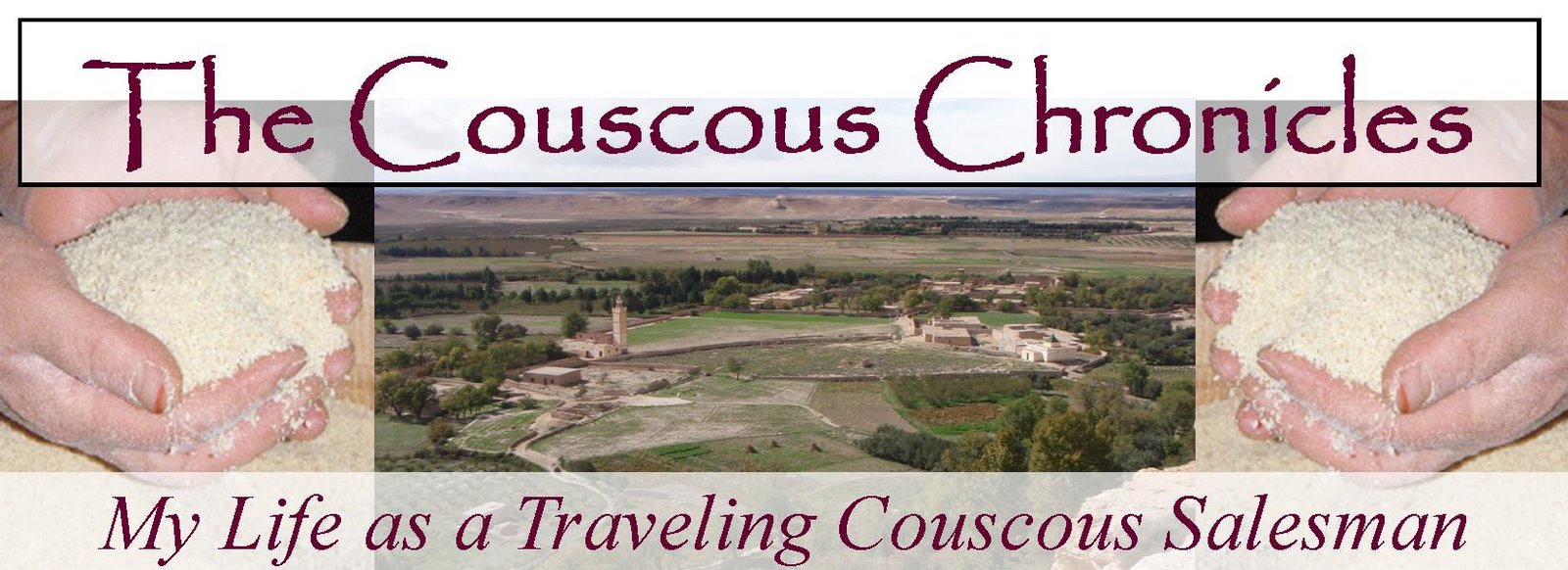The rural Commune. . . Morocco's system of local governance and the single biggest mystery of my Peace Corps service. What exactly do they do in that little office five miles away? Who's right, the villagers who say that the president and all the people who work there are thieves who just pocket the whole budget, or the rich landowner (brother of the president of the commune) who claims that everything is honest and the people just don't understand how hard and expensive it is to run a commune? Every time I'd try to pin down exactly what the commune does for its constituents, I get two answers. The people say, "the president eats all the money" and then chuckle to themselves because the president is in fact pretty fat. The rich landowners say, "the commune doesn't have any money in the first place, and the money they do have goes to pay the salaries of the 24 employees, about five of whom actually show up at work while the other 19 just come to pick up their paychecks." "Why do they still get paid if they don't do any work?" "Oh, Cynthia, you just don't understand this country or the people. It's illegal to fire a government employee because there aren't enough jobs in the country right now. Plus there are 11 villages in the commune, not all the money can go to ours."
So one day last month I took a little trip to the commune just to check things out. The building is practically empty; cold and bare and sparsely furnished with a few super old desks, stacks of hand-written files, a photocopier from the mid-eighties, and one super old computer back in a corner. I casually asked to see a copy of the budget.
"The budget? We don't have a copy of the budget here."
"What? How can you not have a copy of the budget? How do you know how much money to spend on things?"
"Nope, no budget here. We sent that to the provincial office in Khenifra. You have to go there to find it."
"Can I just look for one minute at the files on that computer. Maybe I can find something."
"Oh no, if you want to see the budget you have to file a request, and once the president approves it, you can see the budget."
"Okay, how do I file that request? Maybe since the president is your brother, you could just call him and ask."
"You really need to see the budget?"
"Yes. You're always telling me I don't understand the commune; I just want to understand. Plus, if you're doing anything shady, it's not going to appear in the budget. I'm not asking for your receipts, this isn't an audit."
So they printed me a copy of the 2008 and 2009 budgets. Here are my favorite parts for 2009, keeping in mind my earlier description of the building:
Decorations for commune office 7700 dh ($850)
Uniforms for maintenance staff 5500 dh ($650)
IT and new computers 11,000 dh ($1500)
Office supplies 38,500 dh ($4500)
Window glass 3300 dh ($400)
Paint 11,000 dh ($1500)
Weapons 2200 dh ($250)
Art 2600 dh ($300)
*blank line* 60,000 dh ($7500)
The rest is all pretty small and could potentially be true. Of an almost 4 million dirham budget ($500,000), half goes to salaries. That still leaves 2 million dirham a year that could (and in my opinion should) be used for development. $250,000 doesn't sound like a lot by American standards for sure, but it certainly could do a lot of good here in rural Morocco if it was put to honest use. As Peace Corps volunteers, we can apply for grants to do small projects, of about $2500-$3500, like the bathroom projects we're doing.
That's only 1-2% of what the commune has at its disposal every year to carry out projects.
skip to main |
skip to sidebar
Followers
Blog Archive
-
▼
2010
(46)
-
▼
January
(10)
- Why did this take Four Months?
- School Bathroom Nightmare, Part IV
- Am I crazy to be doing this again? Part I
- Am I crazy to be doing this again? Part II
- Am I crazy to be doing this again? Part III
- Blank line item. . . 60,000 dirhams. Part I
- Blank line item. . . 60,000 dh. Part II
- Mickey, Vicki and Nicky
- Blank Line Item. . . 60,000 dh. Part III
- Could it be??? A neutral party???
-
▼
January
(10)
